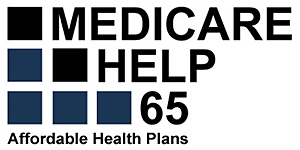No. Healthcare providers that accept you as a Medicare patient are the same as independent private practitioners that you would normally have seen for diagnosis and or treatment. The federal government runs and regulates Medicare; it pays for the medical services you use.
No. In fact, the opposite may be true. If you had health insurance from a private employer, you probably had two or three plans to choose from. Medicare offers a choice between traditional Medicare and allows you go to any doctor a provider in the U.S. that accepts Medicare. Medicare Advantage health plans offer multiple choices. You may be overwhelmed by the number of options in your area.
Current and past health issues do not disqualify you from Medicare coverage or require you to pay higher premiums or co-payments in Massachusetts than that of someone in perfect health. That kind of discrimination, while common in the past with private health insurance, has never existed within Medicare.
One exception is that people with advanced kidney failure can’t enroll in a Medicare Advantage plan. However, they still receive coverage (which could be delayed) for the appropriate care, meaning the regular dialysis or a kidney transplant under the traditional Medicare program. In addition, a history of smoking, alcohol use or abuse, or obesity does not increase rates.
It could be. Medicare requires monthly premiums, deductibles, and co-pays that you’re responsible to pay, unless you qualify for a low-income subsidy program. If you’re a high-income earner, your Medicare payment will cost extra depending on the bracket you’re in.
Medicare does have some deductibles, but they’re relatively small compared to the ones of a private health insurer. Many people are in high-deductible health plans that are sponsored by employers and sold on the open insurance market.
Not necessarily. Traditional Medicare has no limit on the cost you pay out-of-pocket during the year. Although you may buy a Medigap insurance to cover these costs, some plans have lower limits and some have a higher limit. Your prescription drugs Part D program may qualify for catastrophic coverage that will lower your cost for the remainder of the calendar year.
No. Your coverage just rolls over from year to year unless you decide to change it. Open enrollment runs from October 15 to December 7 each year. During this time, you can switch from traditional Medicare to a Medicare Advantage plan or vice versa, or from one prescription drug plan to another.
There are no family plans that exist with Medicare; each person must wait until age 65 to join the program unless they qualified because of disability at a younger age (24 months of disability).
Medicare coverage is based on necessity and not age. Once you qualify, if you need medical services at age 100, Medicare will pick up the cost based on the plan you have.
Medicare part D is only available through private insurance companies. If you have Medicare Parts A & B and you don’t have any other drug coverage, then you should enroll in a Part D program. Even if you do not take any medications, you should still enroll in this program to avoid potential penalties in the future.
